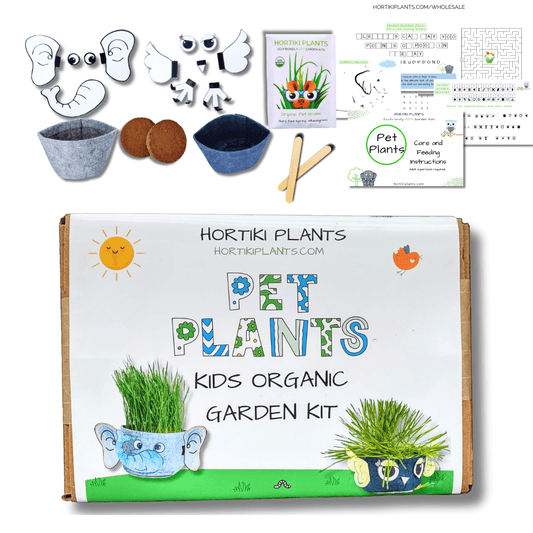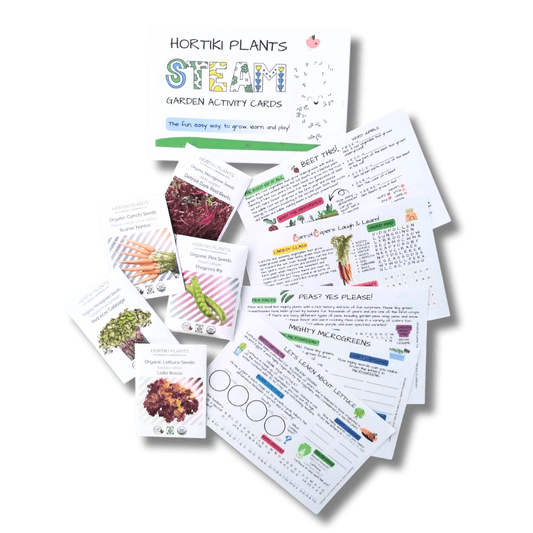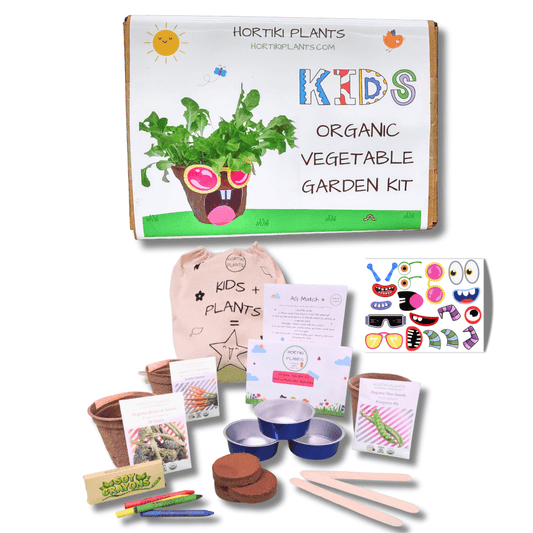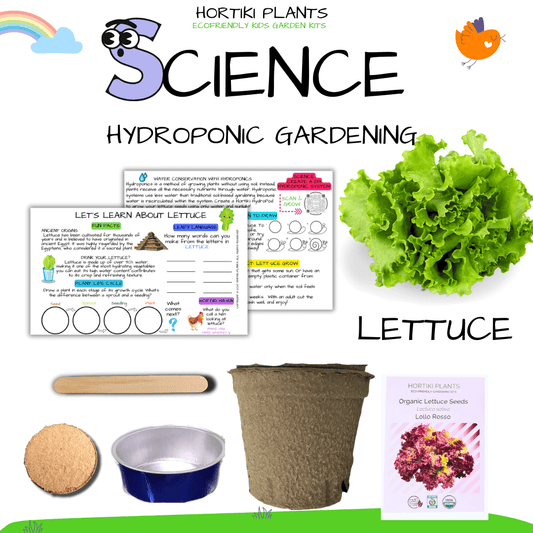November - 🍂 Gratitude in the Garden: Thankful Projects for Kids
Hortiki PlantsGrowing Gratitude with Every Garden Step
November is a time of reflection, appreciation, and giving thanks—and there's no better place to cultivate those values than in the garden. Nature’s cycles of planting, growing, and giving provide a perfect backdrop to help children understand and express gratitude.
With the harvest season winding down, it’s the ideal time to shift focus from productivity to appreciation. This month, Hortiki Plants encourages families and classrooms to dig into meaningful, garden-based activities that celebrate gratitude, mindfulness, and connection to the natural world.
Why Teach Gratitude Through Gardening?
Practicing gratitude has been shown to boost emotional well-being, improve focus, and foster empathy. When children pause to appreciate the garden—and all that it gives—they begin to:
- Recognize nature as a provider
- Value the effort that goes into growing food
- Appreciate the small details: a blooming flower, a buzzing bee, a sprouting seed
- Feel connected to something bigger than themselves
The Kids Garden Journal is the perfect setting to teach these lessons in an active, memorable way.
1. Create a Gratitude Tree in the Garden
Turn a bare tree or even a sturdy stick in a pot into a gratitude tree that displays your child's thankfulness.
📝 How-To:
- Cut out paper leaves in fall colors (or use real leaves if laminated).
- Ask children to write or draw something they are thankful for on each leaf.
- Use twine or clothespins to attach the leaves to branches.
- Place it in a visible location like your garden, classroom, or porch.
🍁 Fun Fact: Many early Thanksgiving meals included garden-grown veggies like squash, corn, and beans—known as the “Three Sisters.”
This activity encourages reflection while also serving as a beautiful, seasonal decoration.
2. Plant a “Thank You” Garden
Dedicate a garden bed or container to growing herbs or flowers as a living thank-you gift. Kids can choose to give it to a neighbor, teacher, or community helper.
🌱 Try These:
- Chives or parsley: Easy to grow and useful in everyday meals.
- Calendula or marigolds: Hardy flowers with vibrant colors that symbolize cheer and warmth.
- Add a handmade tag with a message like, “Thank you for helping things grow.”
Teaching kids to give back through gardening instills generosity and purpose.
3. Reflect with a Garden Gratitude Journal
Provide children with a simple journal (or printable worksheet) where they can answer daily prompts such as:
- What is something in nature you’re thankful for today?
- What garden chore did you enjoy most this week?
- What garden moment made you smile?
Pair this with drawing pages or photo documentation to create a gratitude scrapbook by month’s end.
4. Host a Garden Gratitude Gathering
Invite a small group of friends, family, or classmates for a fall garden gathering focused on thankfulness and seasonal celebration.
Ideas for the Event:
- Share dishes using homegrown or seasonal ingredients.
- Kids present what they’re thankful for, garden-style.
- Create a community gratitude mural using leaves, twigs, and recycled paper.
It doesn’t have to be elaborate—just meaningful.
5. Compost Thanks: Returning to the Earth
Use the idea of composting as a metaphor for gratitude and giving back. Explain that just as compost feeds the garden, our acts of kindness and appreciation nourish our relationships and community.
Encourage kids to:
- Add garden scraps and fallen leaves to your compost bin.
- Reflect on what they’re “returning” or giving thanks for as they do.
- Make signs or a compost collage to celebrate the cycle of life.
Helpful Tip: Make a “gratitude compost recipe” poster with layers like “kindness,” “sharing,” “helping,” and “patience.”
STEAM Connections for Gratitude Gardening
✅ Science: Study the life cycle of plants and discuss nature’s role in providing food.
✅ Technology/Engineering: Build a bird feeder from recycled materials as a thank-you to nature.
✅ Art: Create pressed-leaf art or painted plant pots with messages of thanks.
✅ Math: Chart garden yield and decide how much to share or gift.
✅ Language Arts: Write thank-you letters inspired by nature to farmers, community gardeners, or the Earth itself.
Planting the Seeds of Appreciation
Thankfulness isn’t just a seasonal concept—it’s a mindset that, like gardening, grows with regular care. By pairing gratitude with garden-based activities, we help children express appreciation in tactile, meaningful ways.
Whether through planting, journaling, or crafting, Hortiki’s gratitude-themed garden projects make November a time of warmth, generosity, and reflection.
🍂 Ready to explore gratitude in your garden?
👉 Explore Garden Gratitude Activities ➡️





